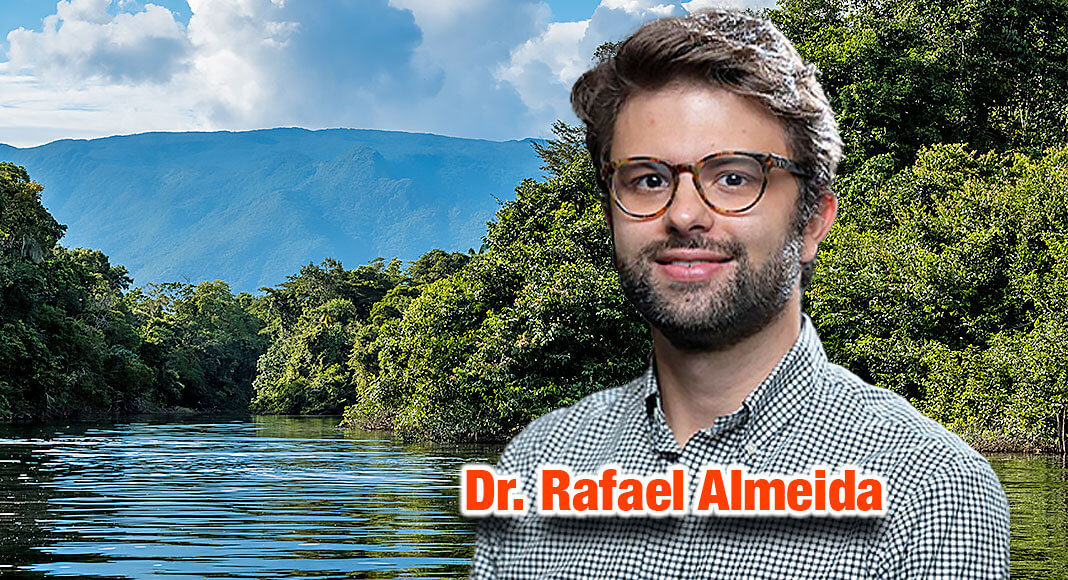
Texas Border Business
| By Victoria Brito Morales RIO GRANDE VALLEY, Texas – Dr. Rafael Almeida, a new assistant professor in the School of Earth, Environmental and Marine Sciences (SEEMS) at UTRGV, has research interests that hit close to home in the Rio Grande Valley – specifically, sustainability and freshwater ecology. The Brazilian-born scientist recently joined UTRGV from Cornell University in New York, where he had spent the past three years working on his post-doctoral studies. While in Ithaca, he was part of a research team that examines hydropower sustainability in the Amazon rainforest. Together, the group wrote a paper titled “Reducing adverse impacts of Amazon hydropower expansion,” and it was published Feb. 18 in the prestigious journal Science. THE RESEARCH: HYDROPOWER IN THE AMAZON The paper – which includes the work of about 40 authors from more than 25 institutions from the United States, Brazil, Colombia, Ecuador, France and Peru – is focused on directing sustainable dam sites in the Amazon rainforest basin. |
“The Amazon is the largest river basin in the world,” Almeida said. “The vast majority of the hydropower potential there has been untapped.”
Currently, there are about 158 dams in the Amazon, but more than 350 larger dams have been recommended for placement throughout the basin. Almeida and his colleagues evaluated the hydropower projects for their collective impact on nature and the community along the Amazon basin, which spans an area 10 times larger than Texas – a rare approach that is critical because the Amazonian rivers flow through multiple countries with diverse topography.
“Considering that only a fraction of these proposed dams will get off the drawing board, we developed a framework that uses artificial intelligence and high-performance computing to identify combinations of hydropower dams that meet energy production goals with minimal environmental harm,” Almeida said. “That is the whole motivation of the project.”
Almeida said renewable energy generation needs to increase drastically as countries transition away from carbon-intensive fossil fuels. But it is fundamental to do so with minimal environmental risks.
Analysis of the recommended dams considers socio-environmental factors that affect ecosystem goods and services, such as river flow, river connectivity, sediment transport, fish diversity and greenhouse gas emissions.
“The real breakthrough of the paper is that we propose a framework for selecting dams strategically, taking into consideration multiple environmental factors that have, thus far, been too difficult to account for simultaneously at the scale of the world’s largest and most biodiverse river basin,” Almeida said.
NEW SUSTAINABILITY COURSES AT UTRGV
Almeida moved to the Valley in August but continued working remotely with his colleagues at Cornell. His UTRGV appointment started in January 2022, bringing his expertise in sustainability, specifically freshwater ecology, to his first faculty appointment.
“I’m broadly interested in understanding how to minimize environmental impacts of energy, food and water in a fast-changing world,” he said.
Almeida currently teaches introduction to environmental science but soon will launch a new course on energy sustainability, the only course of its kind in the SEEMS department.
UTRGV colleague Dr. John “Chip” Breier, SEEMS associate professor, said the department is thrilled to have Almeida at UTRGV.
“The expertise and experience he brings will significantly expand the opportunities for our students, and for the research community in the area of environmental science and sustainability,” Breier said. “Those are critical topics that affect us all.”















